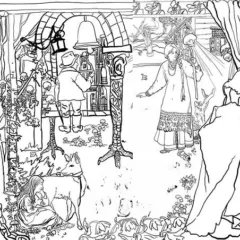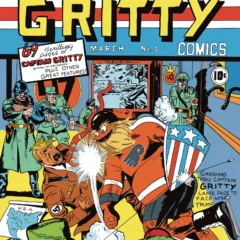For over forty years, Quentin Morris has explored the possibilities of blackness. Larry Becker and Heidi Nivling have selected twelve of Morris’ works, dating as far back as 1980 and as recently as March, 2016, in the current exhibition, “Quentin Morris, Untitled.” I found this thoughtfully organized show moving and meditative. While all the pieces belong to the same dark universe, each one draws the viewer in with its subtle variations of shape, texture, and tone.
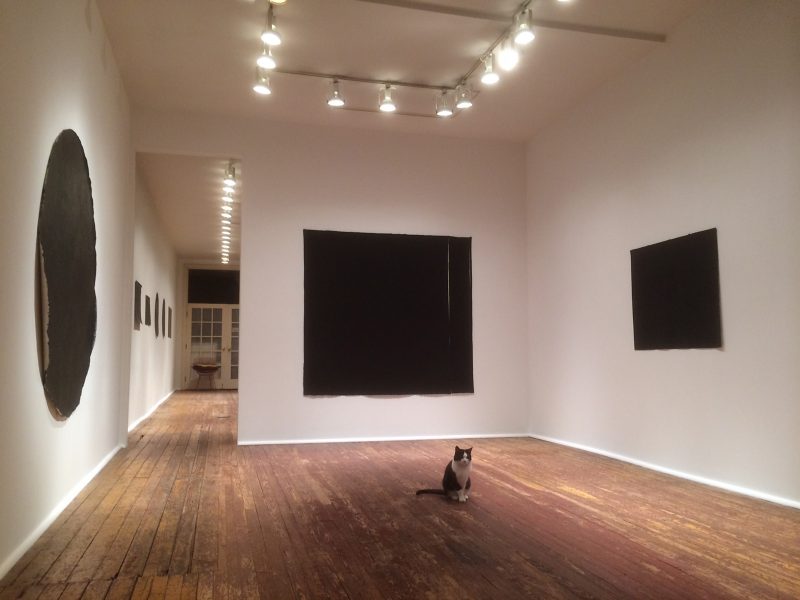

The front gallery contains a series of large-scale paintings, some circular in format and others square. Given the immersive blackness of each work, my eyes were immediately drawn to the sharp contrast between black pigment and white wall in “Untitled (October 1980),” at the back of the gallery. A long, dramatic tear splits the canvas. The product of an accident in the studio, Morris decided to keep the painting in its fractured state. This example is emblematic of his practice, emphasizing the materiality of the canvas and taking advantage of the happenstance of creation.
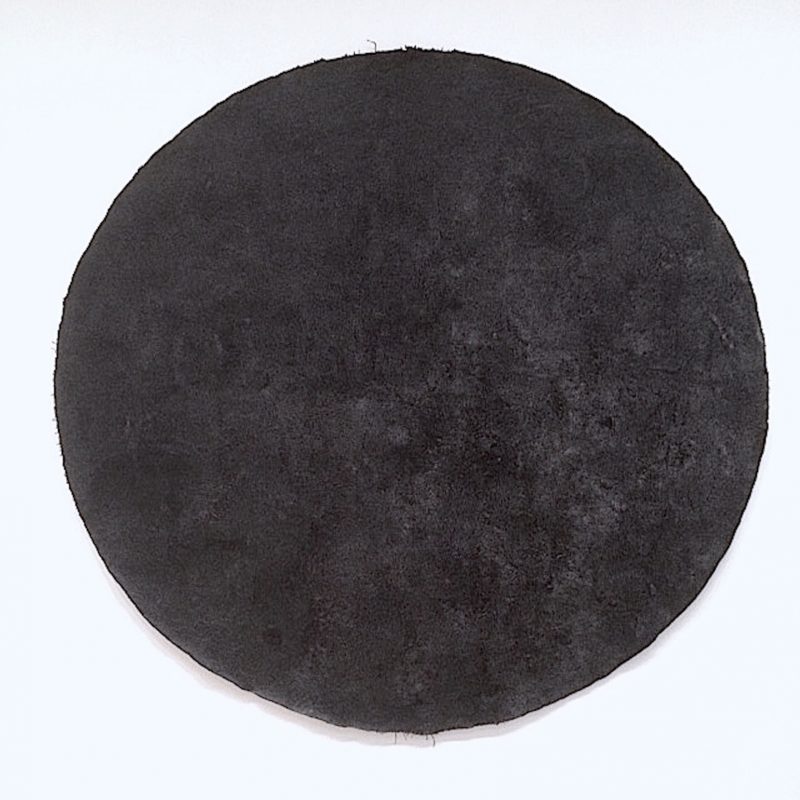
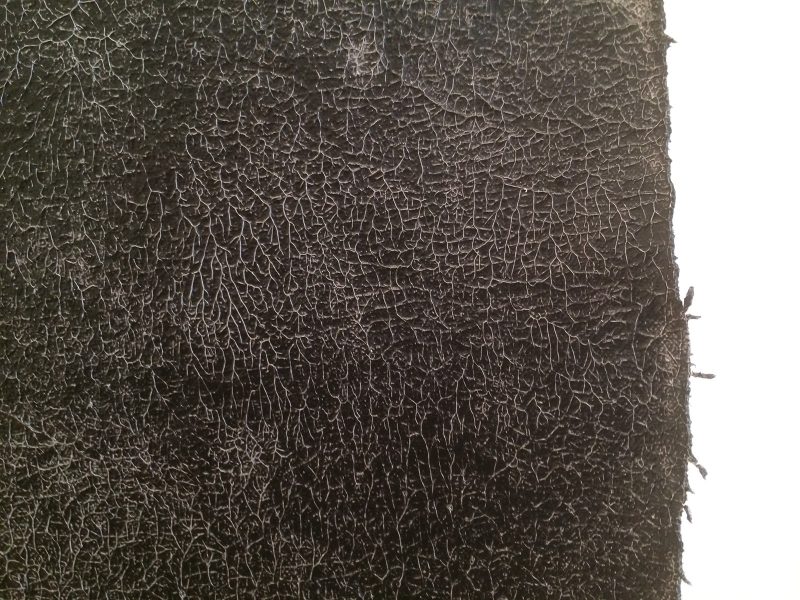
I was also drawn to the newest work in the exhibition, “Untitled (March 2016),” which is one of his circular canvases. Long before Anish Kapoor’s Vantablack, supposedly the blackest black that exists, the artist–who is black–has been experimenting with different media to achieve deeper blacks. In so doing, he manages to combine formal experimentation with an exploration of social, political, and cultural ideas about blackness. While he worked with Rhoplex in the 1980s to produce an rich matte black, he now prefers to use silkscreen ink, which gives his blacks a silken sheen. In this recent painting, Morris has applied a combination of silkscreen ink and polymer acrylic, creating a strange, viscous landscape of hills and valleys of paint. Combined with the frayed edges of his hand-cut canvas that gently curl away from the wall, the painting becomes a map of an alien landscape, inviting us to explore.
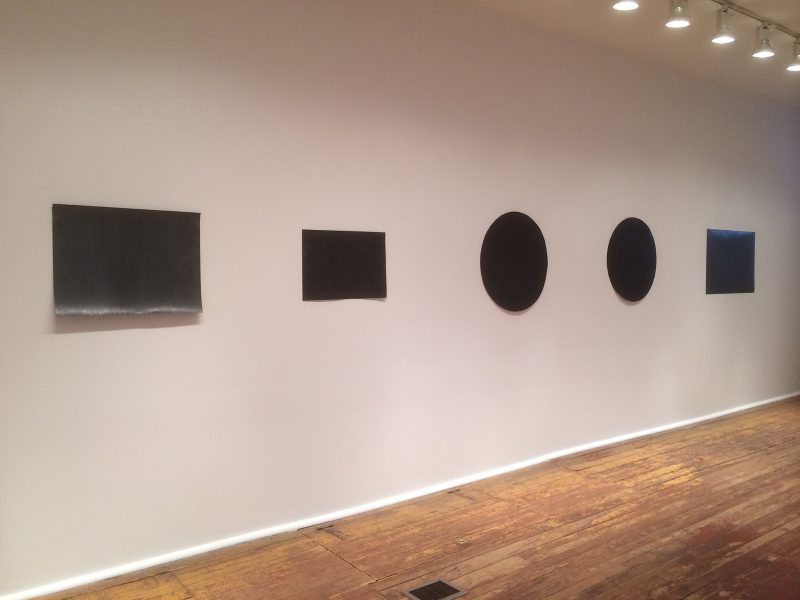
The sense of scale shifts dramatically as I step into the rear gallery. Hung together along the north wall are a series of small-scale paintings and works on paper, as well as one drawing on architect’s Mylar. Entering the gallery, a graphite drawing on thick, woven paper flutters gently against the wall as I pass by, its delicacy belied by its intensity. Morris has applied the graphite with such pressure and in such quantity that the paper support itself has been stretched until it resembles a thin sheet of metal. At the far end of the line of smaller works, another graphite drawing, this time on frosted Mylar, gleams like metal and subtly changes color from dark gray to icy blue as the natural light changes over the course of the day.
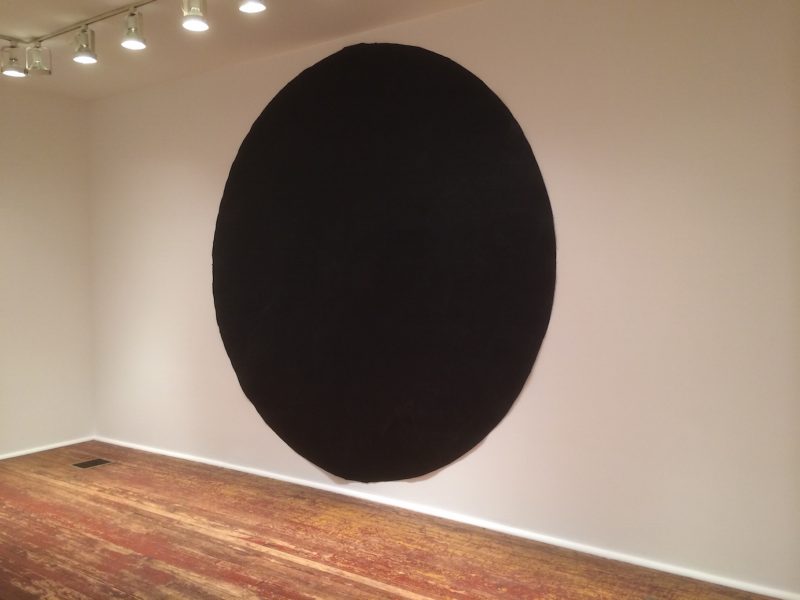
The most monumental and immersive experience still awaits. Turning to the south wall, I am confronted with what gallery co-owner Heidi Nivling calls the “big ohm,” a massive ten foot circular canvas that expands from the floor all the way to the ceiling. “Untitled (November 1993)” compels me to come closer, to be surrounded by the painting until it occupies my entire field of vision. Like one of Rothko’s famously unframed canvases, the painting conveys a deep spirituality, an expansiveness and lightness that are not at all at odds with its blackness. Here I come face to face with the deep meaning and purpose of Morris’ work, which is, in his words, “to present black’s enigmatic beauty and infinite depth; to refute all negative cultural mythologies about the color, and ultimately to create work that innately expresses the all-encompassing spirituality of life.” Standing in front of this monumental canvas, I experience the beauty and depth with which Morris imbues all his work.
“Quentin Morris, Untitled” is on view at Larry Becker Contemporary Art, 43 N. 2nd St, until Saturday, 28 May. LBCA is open on Fridays and Saturdays, 11 am–5 pm, and by appointment. For more information, call 215-925-5389.


